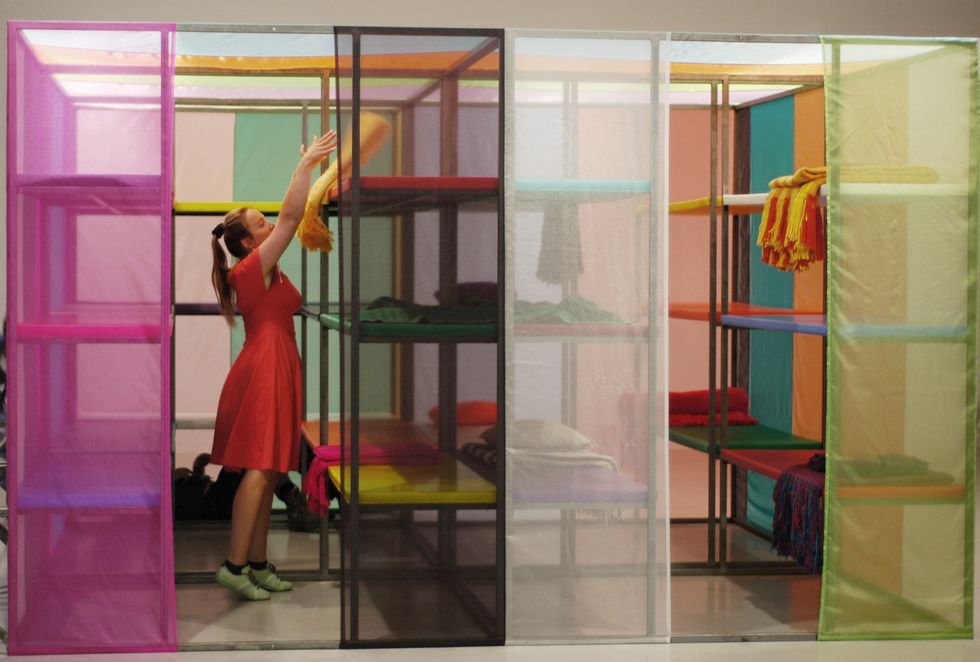I started with the storage closet in my room. I grabbed two paper sacks, one for trash and one for giveaway. I went from top to bottom on the shelves, methodically going through every item and easily tossing one after the other in one of the bags. I moved to the closet for my clothes once that one was thoroughly wiped clean of clutter.
From left to right, I pulled out the sweaters, blouses, jackets, and jeans that I never wore. The paper sack was already overflowing from the prior closet’s purge. A large lump of mismatched colors and fabrics formed in the center of my room which left behind a collection of dangling white and metal hangers. I finished by fishing out the unneeded items in my drawers. I threw away old socks with no mate, I donated old shorts that no longer fit.
When I finally freed up two drawers, I bagged up the clothes and shoved them in the trunk of my car. My room was emptier, but I felt lighter.
Maybe I did this because it’s a new year or I had just returned from three weeks of extensive travel. Perhaps, it can be labeled as “spring cleaning.” Whatever it was, it was needed. Getting rid of “excess” is needed. I tried to picture my closet, but I failed in remembering what exactly was inside.
I’ve always been intrigued by minimalism. Don’t look up minimalism and click images. Google only pulls up pictures of “nothingness” and that’s not very comforting. No, my room isn’t empty like the online images show.
I still have my bed with pillows and blankets. I still have a desk and a chair, and pens, and pencils. I still have pictures on the walls and clothes in my closet. What I don’t have is "excess." The minimalist mindset differs from average consumer’s mindset. Society tells us to consume as much as possible. Shopping is good, buy more, it makes you look better and hey, it even helps out the economy.
Minimalism allows you to focus on what you value most. Material possessions are only material, easily replaced, easily destroyed. Becoming minimalist doesn’t mean you just get rid of everything you own.
Instead, it means finding out what you truly value in your life and gaining the most value from that as possible. Yes, you are required to give away some of your possessions, but you gain more value in the things you already have. Take this idea a step further, and think of ways you could purge yourself from unnecessary things that aren’t material: actions, thoughts, people.
Minimalism leads to a more meaningful life. For more information, you can refer to Joshua Fields Millburn & Ryan Nicodemus and their website on living minimalist.






















